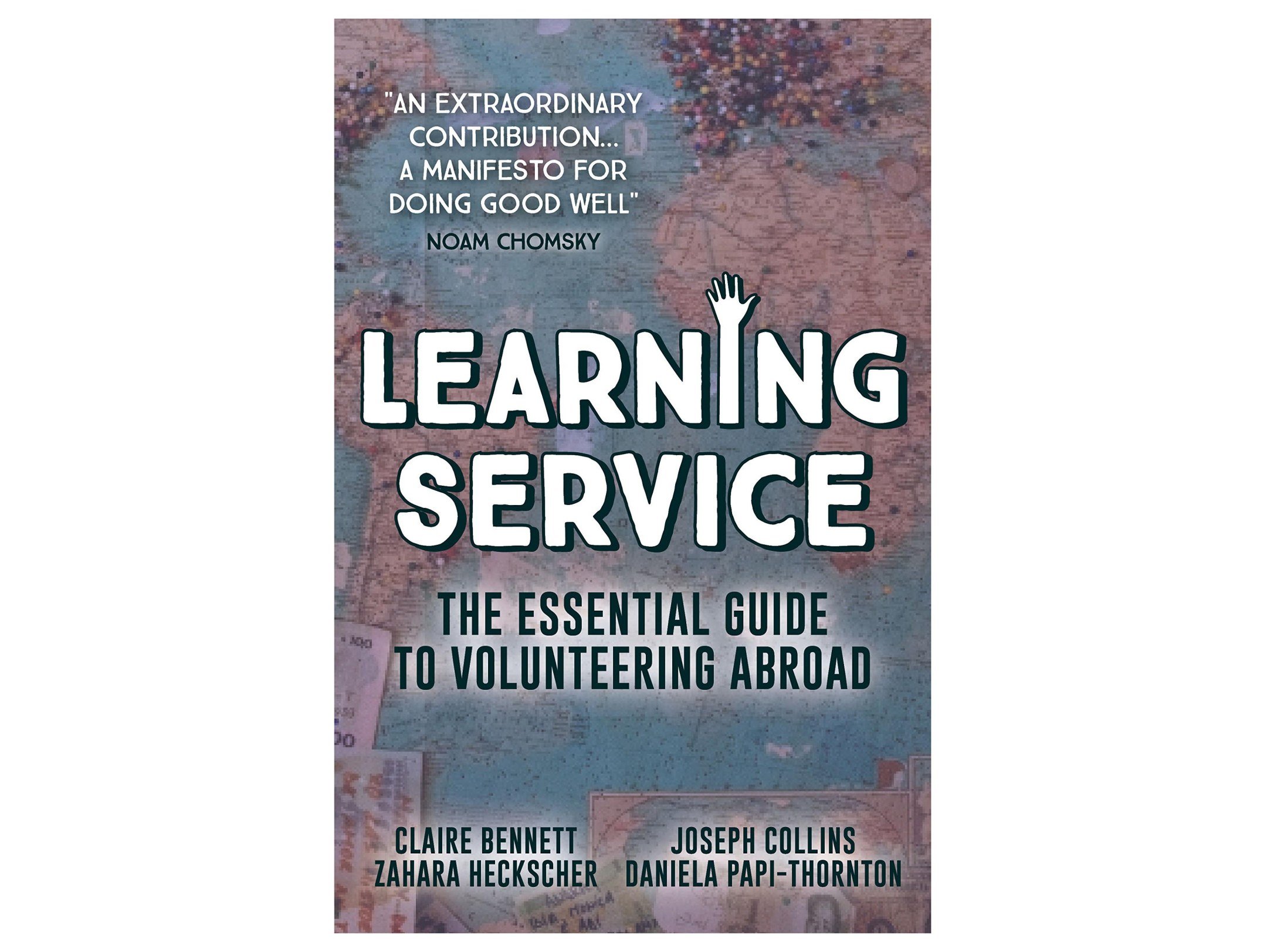How to Find an Ethical Volunteer Abroad Program: Ask These Questions
Go ahead, Google “volunteer abroad program” – you’ll get almost 700,000 results.
With the skyrocketing popularity of voluntourism in recent years, signing up to teach school in Kenya is as easy as the click of a button (as long as you have the funds).
But not all of these organizations are created equal! Every nonprofit website is decorated with heart-wrenching images and inspiring mission statements, though the reality on the ground doesn’t always live up to the advertisement. (The rise in orphanage tourism fueling the exploitation of vulnerable children is a perfect example of the serious damage well-meaning volunteers can do.)
So how do you know which ones are ethical volunteer abroad programs? You spend a lot of quality time with your laptop, and you ask some tough questions.
But before you start searching for volunteer programs, ask yourself these questions first to determine if you should even be volunteering abroad in the first place.
…
… There, I just gave you a space to go answer those questions for yourself. Did you do it? If not, do not pass go, do not volunteer abroad. (I’ll know if you cheat!) If so, read on:
Is Your Volunteer Program Ethical? Questions to Ask Before Signing Up
Where does my volunteer fee go?
You don’t want to work with any organization that won’t give you a clear breakdown of how they are spending your money. Hopefully they’re transparent enough to provide that information right on their website.
Usually volunteer fees are used to provide support for volunteers on the ground (food, housing, in-country transportation, etc). Certainly a portion will also go back into the project or organization. Just make sure that most of your money is going to support local staff and initiatives, rather than lining the pocket of some Western guy who owns the voluntourism company.
What makes your program sustainable?
If you spend a week teaching English, providing medical care, or playing with orphans (don’t do that), what happens after you leave? Who picks up where you left off in class? Who follows up on the elderly woman with a chronic illness? Who fills the empty space you left in the orphans’ lives?
Midwives for Haiti trains local nurses (like this one teaching a prenatal care class) so that eventually foreign volunteers will no longer be necessary.
The goal of any responsible volunteer program should be to work themselves out of a job. They shouldn’t want to keep bringing in foreign volunteers until the end of time. They should be focused on transferring power to local leaders who can make volunteers unnecessary.
Will that kind of change happen overnight? Of course not. I recently volunteered with Midwives for Haiti, an organization that trains Haitians to be skilled birth attendants. Foreign volunteers supplement the training program by teaching midwifery skills and mentoring students in their clinical environment. I know it will be many years before the amount of education and resources will allow Haitian midwives to deliver all the babies in Haiti and train their own future generations of midwives without foreign assistance – but that should be the goal.
Will I be provided with a translator?
If you speak the local language of the community in which you’re volunteering, great! If not, you’ll need a translator in order to be effective at almost any job. As a nurse, I can tell you that trying to treat patients on a medical mission without a translator is a waste of everyone’s time, and probably quite dangerous.
If an organization is going to set you loose to work in a foreign country without a translator, that’s a pretty clear sign that they aren’t particularly concerned with whether or not your job gets done right.
What is your photography policy?
See? I’m guilty of it, too. Look at me, “saving” Africa by playing with kids at recess. Learn from my mistakes!
Western volunteers are notorious for sharing photos of themselves looking like Mother Teresa (if she was in her twenties and shopped at Anthropologie) surrounded by grateful African children (have you seen Instagram’s Barbie Savior?).
I have often seen volunteers disclose the HIV status of the children they’re posing with. As a nurse, I myself have taken and shared photos of patients in medical settings in Africa (before I knew better) – which I would never do in America. It’s important for organizations to set ground rules for volunteers to positively and respectfully portray these communities to the world.
If a nonprofit doesn’t have a policy regarding photography and social media, that’s not a great sign. I have been on medical missions in which getting a heart-wrenching photo for the website appeared to be the main goal of the project (as opposed to, say, helping people).
Here’s a great checklist (along with a funny video) that resembles what ethical volunteer programs should require when it comes to photography.
If you’re not certified and experienced in teaching the applicable age and subject, don’t do it!
What will my work responsibilities be?
It’s important to gain a clear understanding of what your daily activities will be (you know, before you’re expected to do them). For example, in Uganda I was very aware that volunteers were meant to be mentoring local staff, not doing their jobs for them by treating patients on our own.
I have been on volunteer trips in which each day’s activity was up in the air – one day I’d find myself following along on home visits to ill patients, the next day teaching primary school (which I am absolutely not qualified to do.) I was even told one day that I’d be teaching “CRE” – which turned out to stand for Christian Religious Education, and which led to an uncomfortable conversation that could have been avoided had I done my research beforehand!
Once you know your job expectations, be honest about whether or not you’re qualified to do this work. If not, the search continues!
What role do locals play in your projects?
It is absolutely essential that local community members are active participants in any volunteer program. Humanitarian work is littered with stories of projects that failed because Westerners told locals what they needed, rather than listening to what they wanted.
When I volunteered with International Volunteer Headquarters in Tanzania, it was clear that the staff at the hospital where I worked had no interest in hosting volunteers. We were more trouble than we were worth. Because almost anyone who could afford the fee was allowed to work in the hospital, local staff ended up spending their time hand-holding volunteers with no medical experience. By the time I showed up and wanted to work with them to make some positive change in the wards, previous volunteers had already destroyed that potential relationship. (Needless to say, I do not recommend IVHQ.)
Also, make sure the volunteer program is providing jobs for locals, not taking them away. Most communities are not suffering from a lack of unskilled labor, so there’s no reason to fly in a group of American teenagers to paint a school. Skilled work can be tricky, too: A volunteer teacher’s program fee could easily cover a year’s salary for a local teacher in many places.
Any ethical volunteer abroad program should strive to hire locals whenever possible, including putting local staff in leadership positions.
One thing I loved about working with Medical Teams International in Uganda: Our clinical leadership were all locals, and MTI had begun sending experienced Ugandan clinicians on disaster response deployments to other developing countries (after all, they’re the experts in these settings!)
Can I speak with a previous volunteer?
Any organization with nothing to hide will happily connect you with someone who has done the program you’re considering. This is a great chance to get honest insight.
Get them on the phone and pick their brains. What did they like or dislike about the organization? Did they feel they really made a difference? Would they volunteer with them again? What do they wish they had known going into it? And ask them all the same questions you asked the organization, to see how they match up.
Is it a lot of work to find an ethical program to volunteer abroad with? Hell yes, it is. Is it worth it? Absolutely. Don’t give your hard-earned money and valuable time to anyone who isn’t truly putting the host community first.
Do you have any suggestions for ethical volunteer abroad programs? I’m always getting asked for recommendations, so you’ll help me (and other volunteers!) out if you tell us about them in the comments!
You Might Also Like:
This post may contain affiliate links. If you make a purchase through our links, we get a small commission at no cost to you. This helps with the cost of keeping this site running – so thank you for clicking through! Don’t worry, we won’t recommend anything we don’t fully believe in.
















